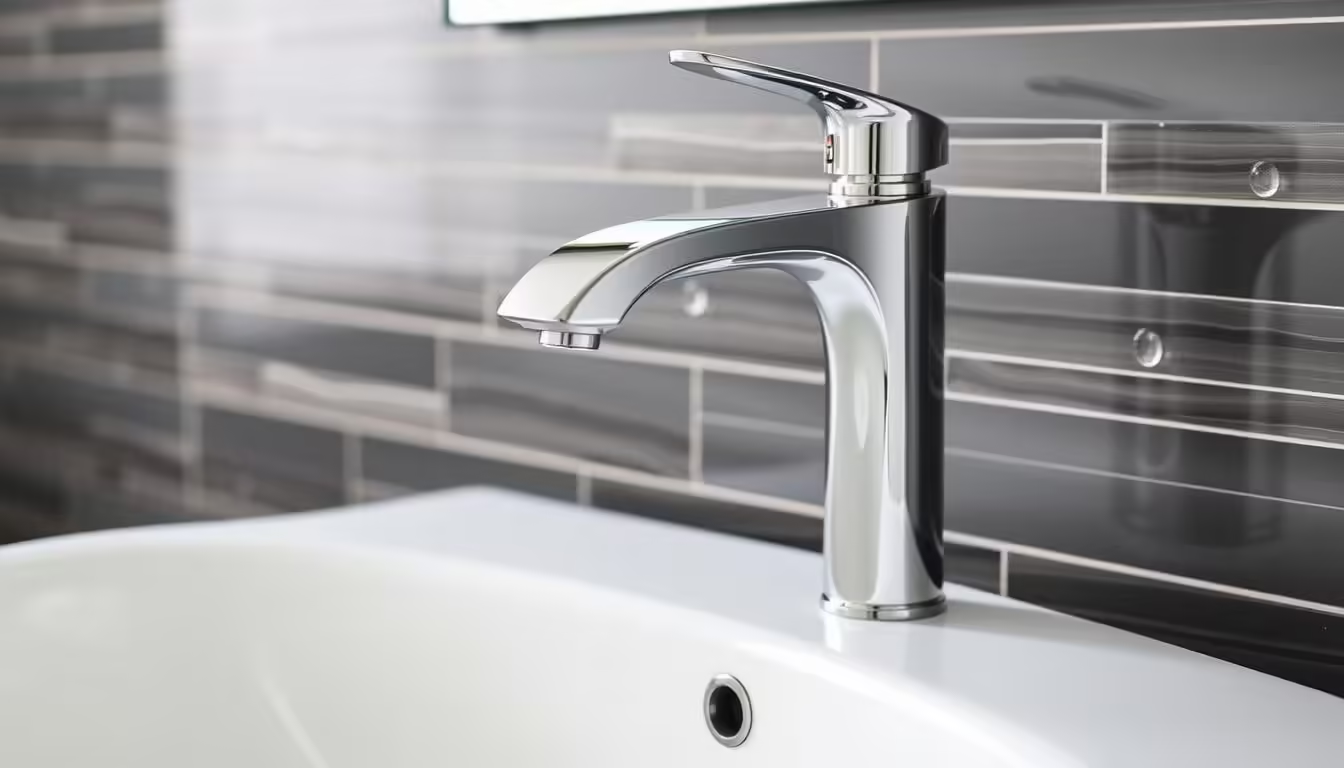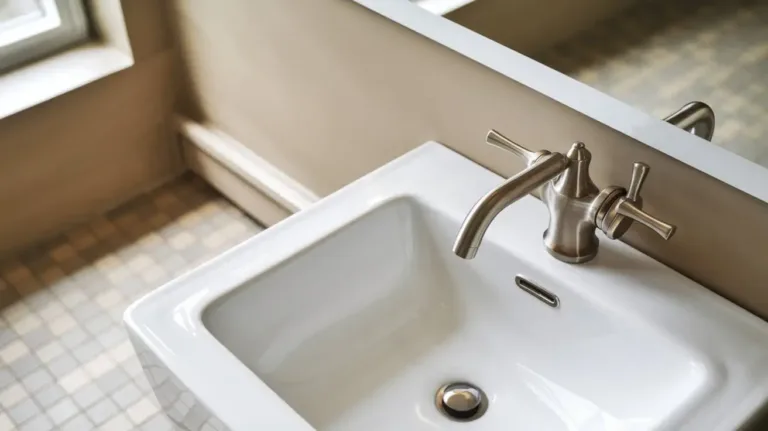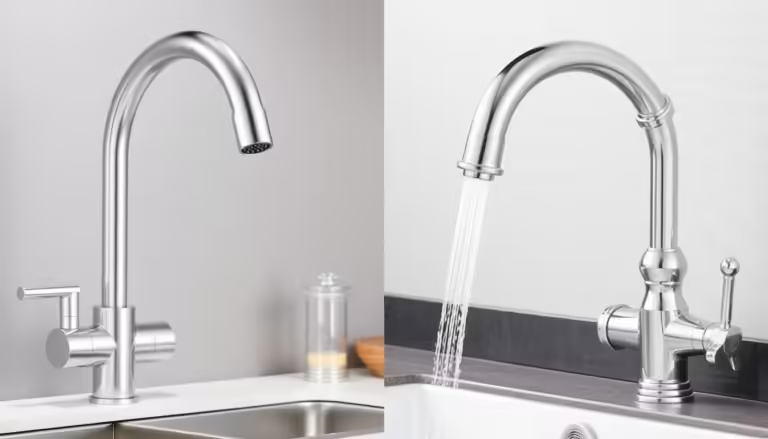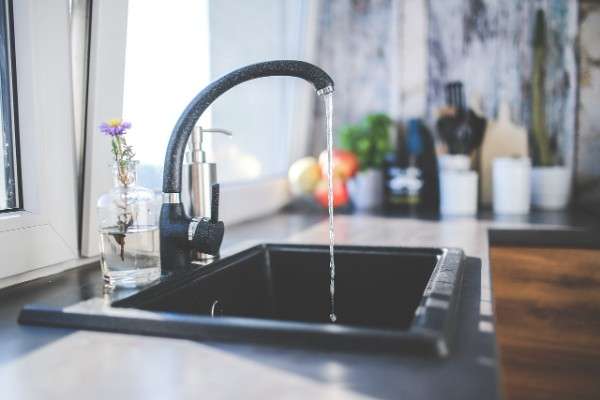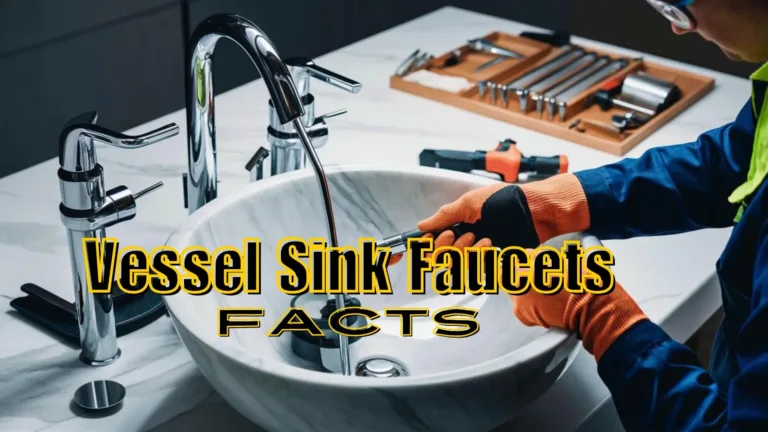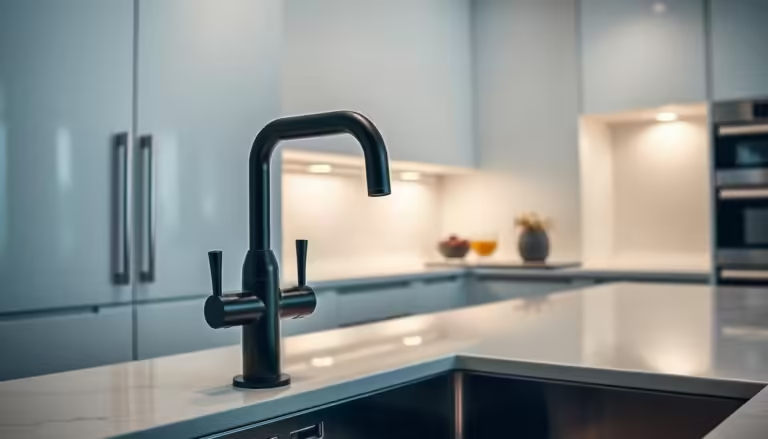What to look for when buying a bathroom faucet?
Upgrading your bathroom faucet can change your space’s look and feel. But, with many options, picking the right one can be tough. I’ll help you understand what to look for in a new bathroom faucet. This includes types, quality, and features.
By the end, you’ll know how to choose the perfect faucet. It should match your needs and style.
Key Takeaways
- Understand the different types of bathroom faucets, including single-handle, double-handle, widespread, and centerset options.
- Consider the faucet’s finish and style to ensure it complements your bathroom’s overall design.
- Evaluate the quality of the materials and look for durable, long-lasting faucets with reliable warranties.
- Determine the right faucet height and reach to ensure proper clearance and functionality.
- Explore water-saving features like low-flow options to help conserve resources and reduce your utility bills.
Understanding the Different Types of Bathroom Faucets
Choosing a bathroom faucet can feel like a big task. But knowing the differences between types can make it easier. Let’s look at single-handle, double-handle, widespread, and centerset faucets.
Single-Handle vs. Double-Handle Faucets
Single-handle faucets are sleek and modern. They have one lever for both water temperature and flow. They’re easy to use and fit many styles.
Double-handle faucets, on the other hand, have separate handles for hot and cold water. They offer precise temperature control. Their classic look suits many bathroom styles.
Widespread vs. Centerset Faucets
Widespread faucets have three parts: two handles and a spout. They’re installed far apart, giving a luxurious look. They’re great for big vanities.
Centerset faucets combine all three parts into one unit. They save space and are perfect for small bathrooms or narrow vanities.
| Feature | Single-Handle Faucet | Double-Handle Faucet | Widespread Faucet | Centerset Faucet |
|---|---|---|---|---|
| Water Control | Single lever for both hot and cold water | Separate handles for hot and cold water | Separate handles and spout | Integrated handles and spout |
| Appearance | Streamlined, modern | Classic, timeless | Grand, luxurious | Compact, space-saving |
| Ideal for | Versatile use | Traditional bathrooms | Larger vanities | Smaller bathrooms |
Knowing the features and benefits of these types of bathroom faucets helps you choose the right one. It should match your style, bathroom layout, and needs.
Considering the Faucet’s Finish and Style
Choosing the right bathroom faucet is key to your space’s look and feel. There’s a wide range of finishes and styles to choose from. These can match your bathroom’s decor perfectly.
The bathroom faucet finishes you pick set the room’s tone. Polished chrome adds elegance, while brushed nickel or satin brass bring warmth. For a modern look, consider matte black or gunmetal gray.
The bathroom faucet styles also impact your bathroom’s look. Single-handle faucets are sleek and simple. Double-handle faucets add traditional charm. Widespread faucets make a bold statement, while centerset faucets fit smaller vanities.
“The right faucet finish and style can transform your bathroom from ordinary to extraordinary.”
Think about how the faucet design and faucet aesthetics fit your bathroom’s style. Explore different options and see how they match your decor. The right faucet can make your bathroom a stunning oasis.
Evaluating the Faucet’s Quality and Durability
Choosing a bathroom faucet means looking at the materials and build quality. High-quality bathroom faucet quality and bathroom faucet durability are key. They ensure the faucet lasts long and works well without trouble.
Checking for Quality Materials
Seek out faucets with faucet materials like brass, stainless steel, and ceramic. These are strong, resist corrosion, and last a long time. Stay away from faucets with plastic parts, as they tend to break easily.
- Heavier faucets usually mean better quality.
- Look for a finish that won’t chip or peel.
- Make sure the handle and cartridge move smoothly.
Understanding Faucet Warranties
The faucet warranties tell you a lot about the faucet’s quality and life span. Look for faucets with a lifetime warranty on the finish and at least 5-10 years on the mechanical parts.
| Warranty Type | Typical Coverage | Importance |
|---|---|---|
| Finish Warranty | Lifetime | Ensures the faucet’s appearance will not tarnish or corrode over time. |
| Mechanical Warranty | 5-10 years | Guarantees the internal workings of the faucet, such as the cartridge and valves, will function properly for an extended period. |
By checking the bathroom faucet quality, bathroom faucet durability, faucet materials, and faucet warranties, you make a smart choice. Your bathroom faucet will then give you years of reliable service.

Determining the Right Faucet Height and Reach
Choosing the right bathroom faucet involves considering its height and reach. The faucet’s height should match your sink and countertop for good clearance and function. Also, the reach should fit your needs comfortably.
Ensuring Proper Clearance
To find the right faucet height, measure from your countertop’s top to your sink’s bottom. This will show you the best bathroom faucet height for washing. Most standard sinks need a faucet height between 8 to 12 inches.
Don’t forget about faucet clearance – the space between the spout and the sink. It should be 1 to 2 inches to stop water splashes. Make sure the faucet fits your sink’s depth for enough clearance.
The faucet reach is also key. It’s the distance from the faucet’s center to the sink’s edge. Aim for 4 to 8 inches for easy access and best function.
| Faucet Measurement | Recommended Range |
|---|---|
| Faucet Height | 8 to 12 inches |
| Faucet Clearance | 1 to 2 inches |
| Faucet Reach | 4 to 8 inches |
By looking at these measurements – bathroom faucet height, faucet clearance, and faucet reach – you can pick a faucet that fits your bathroom well. It will also work great.

Exploring Water-Saving Features
Water conservation is key for eco-conscious homeowners. Many water-efficient bathroom faucets have water-saving features. These features help cut down water use and lower bills. Let’s look at some of these smart technologies.
Low-flow design is a big help. Low-flow faucets use less water, usually 1.5 gallons per minute (GPM) or less. This can save thousands of gallons of water each year, without making washing less effective.
Aerators mix air into the water, keeping the same feel but using less water. These water-efficient bathroom faucets can save up to 30% of water, without losing performance.
- Sensor-activated faucets that turn on and off automatically, preventing water waste
- Thermostatic controls that maintain a consistent water temperature, eliminating the need to run water while waiting for it to heat up
- Eco-friendly finishes like brushed nickel or matte black that complement modern bathroom designs
Choosing a water-efficient bathroom faucet with these water-saving features helps the environment. It also saves money on water and energy bills in the long run.
Buying a Bathroom Faucet? Here’s What to Consider
When you’re looking to buy a new bathroom faucet, there are key things to think about. First, you should know the different types of faucets. This includes single-handle, double-handle, widespread, and centerset designs. Knowing this helps you choose the right one for your bathroom’s look and layout.
Then, think about the faucet’s finish and style. Does it match your bathroom’s decor, or do you want something bold? Also, check the faucet’s quality and durability. Make sure it’s made to last and comes with a good warranty.
It’s important to find the right faucet height and reach. You want it to be easy to use and have enough clearance. Looking into water-saving features is also a good idea. It can help the environment and save you money on bills.

